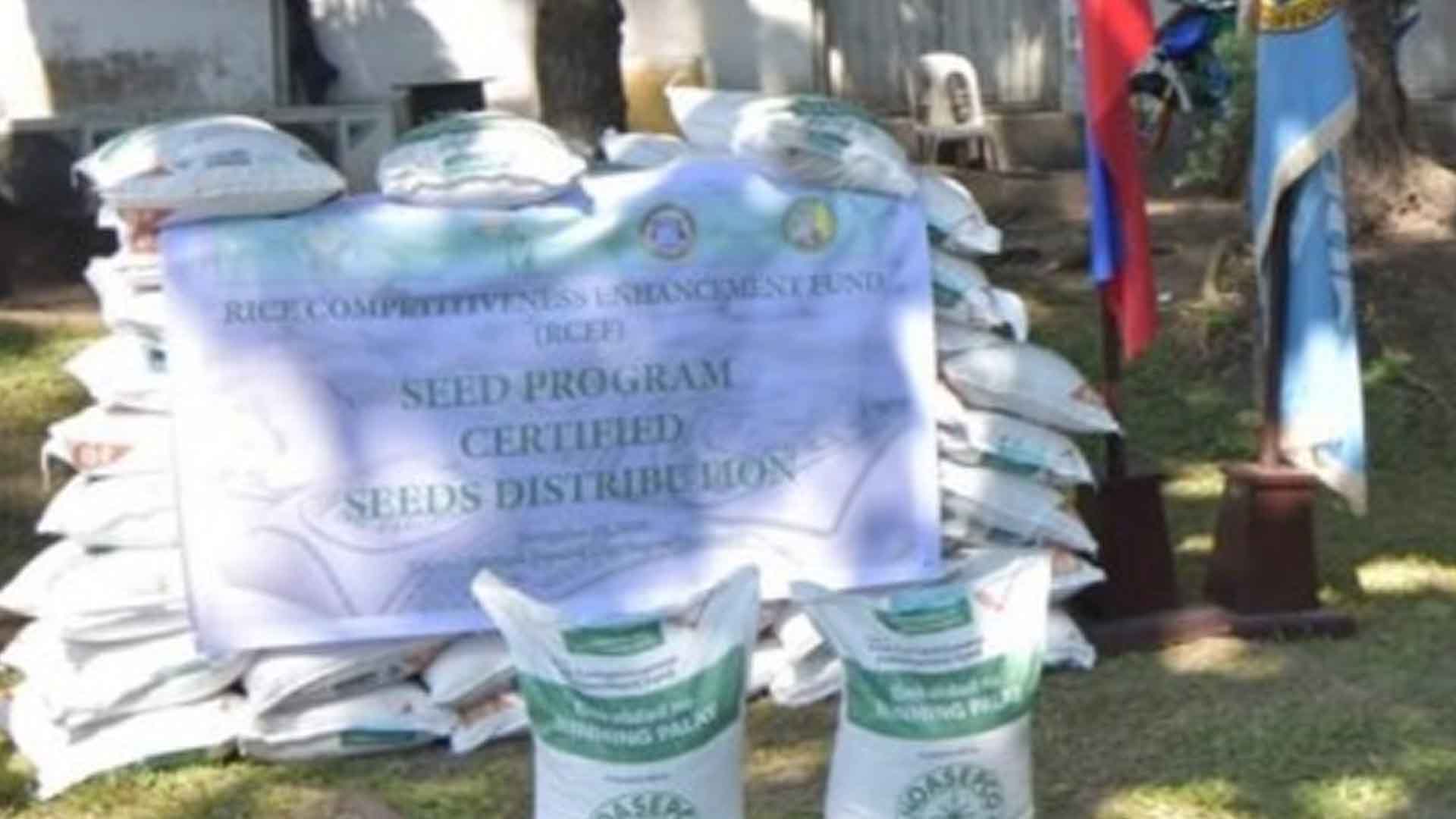The Philippine Rice Research Institute (PhilRice) has started distributing free certified seeds worth PHP174 million to some 57,000 Negrense farmers as part of the implementation of the Rice Competitiveness Enhancement Fund (RCEF).
PhilRice-Negros Occidental Director Gerardo Estoy Jr. said they initially released the seed allocation for two local government units and will complete the distribution to the 29 remaining towns and cities in the province by the second week of December, in time for the planting season.
On Tuesday, Estoy was joined by provincial officials led by Governor Eugenio Jose Lacson during the ceremonial distribution held at the Capitol grounds here, where farmers from Valladolid received 2,773 bags of certified rice seeds.
The day before, 2,035.5 bags were released to farmers in Sipalay City.
Estoy said that Negros Occidental has a total allocation of 57,118.25 bags, covering 51,118.25 hectares per cropping season.
Each bag of certified rice seeds costs PHP1,520, which means the province has an allocation of almost PHP87 million for every cropping.
The PhilRice official said they also provided farmers training on various farming technologies to help them increase their yield and reduce losses.
“The free seeds will have no use if farmers do not know the proper ways or new technologies in rice production,” Estoy said.
Created under Republic Act 11203 or the Rice Tarrification Law, the RCEF, or Rice Fund, is sourced from the tariff revenues of the rice being imported by the country.
Through the program, the government mainly aims to help improve the competitiveness of Filipino rice farmers and augment their income while sustaining resilience and responsiveness.
The RCEF has an annual appropriation of PHP10 billion for the next six years. Of which, 50 percent will be allotted for rice farm machinery and equipment; 30 percent, rice seed development, propagation, and promotion; 10 percent, expanded rice credit assistance; and 10 percent, rice extension services. (PNA)







